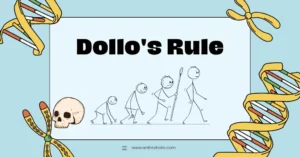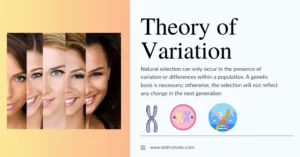AI Answer Evaluation Platform Live Now. Try Free Answer Evaluation Now
David M Schneider
David M Schneider didn’t just study kinship, he deconstructed it. One of the most influential anthropologists of the 20th century, Schneider is best known for revolutionizing the study of kinship, a field that had long been the cornerstone of anthropological theory. By questioning the assumption that kinship is a universal, biological system, he introduced a cultural and symbolic lens that forever changed how anthropologists understood relationships, identity, and meaning.

His fieldwork in Micronesia and later studies in American society led him to challenge foundational theories from giants like Radcliffe-Brown and Lévi-Strauss. Instead, Schneider argued that what counts as “family” or “kin” varies dramatically across cultures-and that these variations are embedded not in genes, but in symbols, values, and belief systems.
Through landmark works like American Kinship and A Critique of the Study of Kinship, Schneider not only shook up anthropology but helped shape the direction of symbolic, interpretive, and post-structuralist thought in the social sciences.
Early Life and Education
David Murray Schneider was born on November 11, 1918, in Brooklyn, New York. Raised in a Jewish family, he came of age during a time when anthropology was emerging as a formal academic discipline in the United States. His early intellectual interests included history and sociology, but it was anthropology’s promise to make sense of the diversity of human cultures that captured his attention.
Schneider earned his bachelor’s degree from Cornell University in 1939. He then moved on to Harvard University for graduate study, where he worked under the influence of prominent figures such as Clyde Kluckhohn and Talcott Parsons. At Harvard, he was initially trained in structural-functionalism, a dominant school of thought at the time, which viewed culture as a system of interrelated parts held together by shared norms and social roles.
During his early academic years, Schneider showed an affinity for kinship and social organization, which were then considered central to understanding non-Western societies. Harvard’s anthropology department provided him with a solid grounding in comparative ethnology and cultural theory, laying the foundation for his later critiques.
Early Career and Fieldwork
World War II interrupted Schneider’s academic progress, and like many scholars of his generation, he served in the U.S. Navy, working in naval intelligence. His wartime experience exposed him to the strategic use of cultural knowledge and likely sharpened his sensitivity to the importance of cultural difference—an insight that would become central to his later anthropological thinking.
After the war, Schneider resumed academic work and began his first major ethnographic fieldwork on the island of Yap, part of the Caroline Islands in Micronesia, then under U.S. administration. This fieldwork, conducted in the late 1940s and early 1950s, focused on kinship, social structure, and land tenure among the Yapese people.
At the time, anthropologists generally believed that kinship was a biologically anchored and universally consistent framework for organizing social life. Schneider’s early publications from Yap followed that tradition, using genealogical charts and concepts like descent, inheritance, and marriage rules. His early work was detailed and respected, but it also sowed the seeds of doubt.
Through his engagement with Yapese society, Schneider began to realize that the standard anthropological models of kinship didn’t always fit local understandings. The way Yapese people defined family, descent, and social obligation did not neatly align with the Western notion of blood ties or biological connection. This dissonance sparked the critical rethinking that would define his later career.
Academic Career and Theoretical Shift
After completing his doctoral work, David Schneider held faculty positions at several universities, most notably at the University of California, Berkeley and the University of Chicago, where he spent much of his academic career. It was at Chicago that Schneider became a pivotal figure in reshaping anthropological thought—especially in the area of kinship.
Initially trained in the comparative kinship tradition of British social anthropology, Schneider began to question the assumption that kinship was universally grounded in biology. His research in Yap had revealed that cultural meanings could diverge dramatically from Western understandings of family, descent, and relatedness. He concluded that anthropologists had been projecting their own cultural logic onto other societies.
This led to his groundbreaking work, American Kinship: A Cultural Account (1968), where Schneider applied the same analytical lens to U.S. society that had previously been reserved for non-Western cultures. He argued that even American kinship was based on culturally specific symbols and values—not universal biological truths. Concepts like “blood,” “love,” and “marriage” were not self-evident; they were culturally coded and embedded in local ideologies of personhood and morality.
In 1984, Schneider published his most influential critique: A Critique of the Study of Kinship, where he argued that anthropology had misunderstood kinship by assuming it was a biological constant. Instead, he proposed that kinship systems are meaning systems, shaped by cultural logic and local classification systems.
Symbolic and Cultural Approaches to Kinship
Schneider’s work helped launch a symbolic and interpretive approach to kinship, rejecting the idea that kinship could be reduced to genealogical structures or universal functions. He distinguished between:
- The “genealogical grid”: a formal, Western model based on biological descent.
- The “code for conduct”: the symbolic meanings and cultural assumptions that give life to kinship systems in specific societies.
By arguing that symbols and meanings were primary, Schneider laid the groundwork for post-structuralist, feminist, and queer theoretical approaches to kinship that emerged in the late 20th century. His insights helped scholars move beyond rigid categories and explore how ideas of relatedness are constructed and contested within social and political contexts.
Notably, his work influenced a generation of anthropologists, including Marilyn Strathern, Sarah Franklin, and Janet Carsten, who expanded the conversation into areas such as reproductive technologies, adoption, and chosen families-domains where biology clearly fails to account for relational meaning.
Influence and Legacy
David M. Schneider’s contributions reshaped anthropology’s foundational concepts. While some early critics saw his symbolic approach as too relativistic or anti-structural, most have come to view his work as essential in breaking the biological determinism that long haunted kinship theory.
His call to treat kinship as a cultural construct had a ripple effect far beyond anthropology—extending into gender studies, science and technology studies, and sociology. He helped anthropology move from thinking about kinship as a fixed structure to treating it as a field of meaning, shaped by history, politics, and imagination.
Schneider also played a key role as a mentor and editor, nurturing young scholars and helping to shift anthropology toward more reflexive and critical modes of inquiry. Even after his retirement, he remained active in debates on kinship, continuing to publish and engage with emerging theoretical currents.
He passed away in 1995, but his intellectual legacy continues to influence how scholars think about family, identity, and relatedness-reminding us that these concepts are not simply inherited, but constructed through culture and narrative.
Conclusion
David M. Schneider changed the way anthropologists think about one of their oldest and most foundational topics: kinship. In questioning the long-held belief that kinship is a universal system rooted in biology, he opened the door to cultural, symbolic, and interpretive approaches that now define the field.
His insight-that kinship is not just about who is related to whom, but about how people think, feel, and talk about those relationships-challenged an entire century of anthropological tradition. Schneider’s work not only dismantled assumptions embedded in structural-functionalism but also pushed anthropology into new terrain, intersecting with feminist theory, queer studies, and science and technology studies.
Through landmark works like American Kinship and A Critique of the Study of Kinship, he laid the foundation for rethinking the family in an era increasingly shaped by adoption, assisted reproduction, and chosen forms of relatedness. His influence reverberates in debates over identity, belonging, and the boundaries of the social.
In retrospect, Schneider was not only a critic of outdated ideas-he was a visionary who saw that the meanings we assign to blood, marriage, and love are never fixed, but always culturally produced and historically situated.
He left behind more than a critique; he left a framework for a more inclusive, reflective, and culturally sensitive anthropology-one that continues to evolve in his wake.
References
- “David M. Schneider.” Encyclopedia of Anthropology. https://sk.sagepub.com/ency/edvol/anthropology/chpt/schneider-david-m-1918SAGE Knowledge
- “David M. Schneider.” iResearchNet Anthropology. https://anthropology.iresearchnet.com/david-m-schneider/Anthropology
- “David M. Schneider.” Britannica. https://www.britannica.com/biography/David-SchneiderEncyclopedia Britannica
- Schneider, David M. American Kinship: A Cultural Account. University of Chicago Press, 1980. https://press.uchicago.edu/ucp/books/book/chicago/A/bo42070637.html
- Schneider, David M. A Critique of the Study of Kinship. University of Michigan Press, 1984. https://press.umich.edu/Books/A/A-Critique-of-the-Study-of-Kinship




